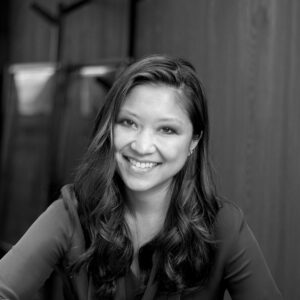Updated April 12
A number of top education leaders, writers, and thinkers are publicly vowing to change the way they talk about improving American education.
The new group, composed of 24 signatories who span a diverse range of political perspectives, ethnicities, and education organizations, released a brief with specific guidelines, expressing its collective commitment to respectful and productive dialogue — particularly during a time of intensifying political tensions, polarization, and marginalization, when disagreements can quickly turn personal and derail efforts to improve the educational system.
“We believe our pluralism can be a strength rather than a weakness. We also know that in the course of conveying our views, we sometimes fall short,” the summary reads. “At times, our public discourse has poorly represented the views of those with whom we disagree, questioned their motives, or veered into personal criticism. Social media exacerbates these negative dynamics. These instances do not advance our important debates and are a poor service to those who look to us for leadership.
“We aim to do better. It is in this spirit, then, that we commit to some norms for working together when we agree and for ensuring a productive discussion when we do not.”
The tenets laid out in the brief for collaboration and debate despite key differences:
Practice Humility: We concede the limits of our own knowledge, admit that our understanding of an issue may be incorrect or incomplete, and commit to exploring disagreements with open minds.
Check Assumptions: We will not make assumptions about a person’s beliefs or ascribe malicious intent to those who hold views that conflict with our own.
Avoid Caricature: We will seek to represent our opponents’ arguments in terms they would recognize and avoid overly simplistic characterizations of their views.
Pick Our Battles: We will not shy away from important disagreements and debates, but neither will we amplify a conflict for the sake of settling scores.
Practice Courtesy: We will address personal disagreements through private conversation, limit our arguments to the issues, and refrain from personal gibes.
Affirm Common Values: At times of passionate disagreement, we will affirm each other’s sincere and heartfelt dedication to improving education and expanding opportunity for young people.
Build Relationships: We understand the importance of building relationships across differences and will seek to build trust with people we spar with in the public discourse.
Race Social Justice and Education Reform by The 74 on Scribd
The statement of commitment is the culmination of nearly a year’s worth of dialogue following last May’s New Schools Venture Fund Summit, an annual invitation-only gathering of more than 1,000 entrepreneurs, educators, community leaders, and policymakers to share ideas on how to innovate schools. Last year’s summit highlighted issues of diversity in education leadership and the role of social justice in education reform. What followed was an explosion of political agitation and ideological acrimony across all schools of thought.
“It’s true that the discussion had a decidedly progressive bent to the content discussed,” NSVF CEO Stacey Childress said. “While we were proud of the conversation at our summit, we also understood the critique.”
Childress said she felt the responsibility to stay engaged and continue the conversation beyond the May gathering in California. So in January, NSVF and the American Enterprise Institute hosted a private roundtable with the 24 leaders whose names now stamp the newly released summary. The group included school leaders such as former Los Angeles Unified superintendent John Deasy and former D.C. Public Schools chancellor Kaya Henderson, as well as thought leaders like AEI Director of Education Policy Studies Frederick M. Hess and Walton Family Foundation fellow John Bailey.
The signatories acknowledge their differences in values and ideals, and in how they diagnose, prioritize, and address education challenges. Their goal during the roundtable wasn’t to resolve those differences, nor to reach consensus: “We believe that consensus on such thorny issues would more likely signal superficial conciliation than productive deliberation,” they wrote.
Rather, they worked to better understand the range of perspectives and identify practices that would allow them to better collaborate and effectively exchange ideas.
Next steps in the coming months, Childress said, include determining how best to expand the dialogue and move to action by expanding the circle of those engaged in the discussion. “We wanted some norms for how we engage with each other that even in our disagreement might preserve the potential for working together for when we do agree,” Childress said. “It’s still a pretty small group, even with the mix of thinkers, policymakers, and funders. We need to make sure it broadens to include people on the ground.”


;)
